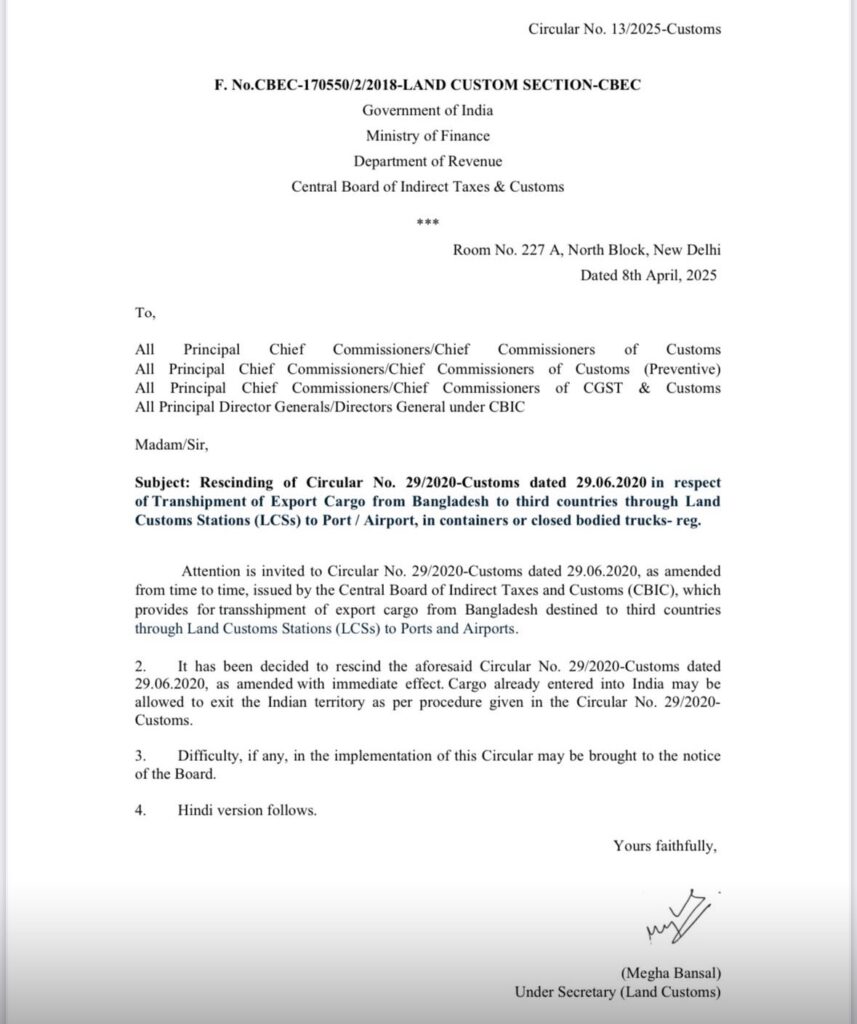By The Sampadak Express
India has decided to terminate the transshipment facility for Bangladesh’s export cargoes following controversial remarks made by Bangladesh’s Chief Advisor, Muhammad Yunus, about India’s northeastern states. The move, announced by New Delhi on Wednesday, is expected to disrupt Bangladesh’s readymade garment exports to neighboring countries, including Nepal, Bhutan, and Myanmar.
The Central Board of Indirect Taxes and Customs issued a statement confirming the immediate cancellation of the circular dated June 29, 2020, that allowed transshipment. However, it mentioned that cargo already entered into India will be allowed to exit as per the previous procedure.

Indian authorities cited “delays and higher costs” hindering India’s own exports as the primary reason for this decision. Ministry of External Affairs Spokesperson, Randhir Jaiswal, explained that the transshipment facility had led to significant congestion at India’s airports and ports, causing logistical delays and backlogs.
Yunus’s remarks, made at a recent event in China, claimed that Bangladesh was the “guardian of the ocean” for the seven landlocked Indian northeastern states and invited China to use Bangladesh as a trade gateway. The comments provoked sharp criticism from Indian political leaders.
This decision is a further blow to Bangladesh, which is already grappling with steep tariffs on its goods from the United States. The 37% reciprocal tariffs imposed by former US President Donald Trump are expected to increase logistical challenges for Bangladesh’s exports.
For India, the move is expected to ease logistical burdens for domestic exporters, especially in sectors like apparel, footwear, and gems and jewellery. Ajay Sahai, Director General of the Federation of Indian Export Organizations (FIEO), highlighted that the move would free up air cargo capacity that was previously taken up by the transshipment facility for Bangladesh.
The decision also reflects a cooling of relations between India and Bangladesh, which had already been strained after Bangladesh’s Prime Minister Sheikh Hasina sought refuge in India following student protests in her country.



